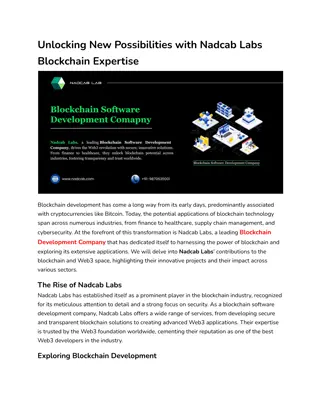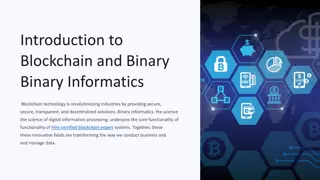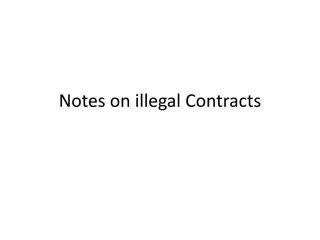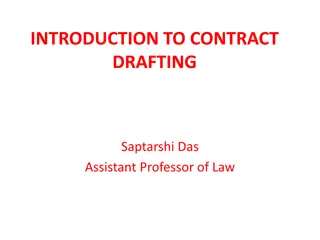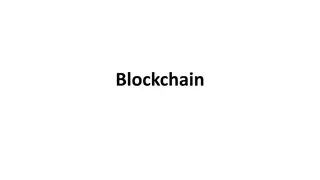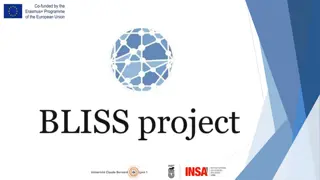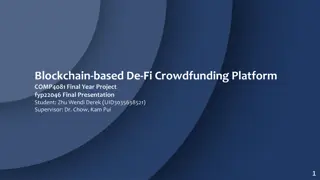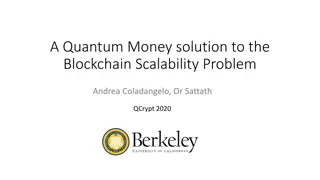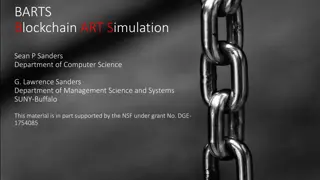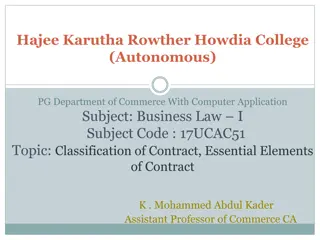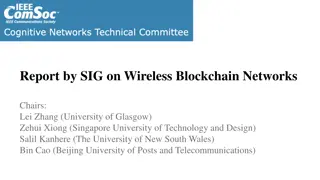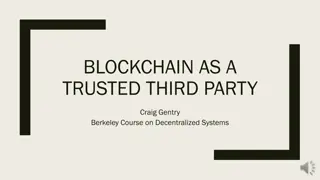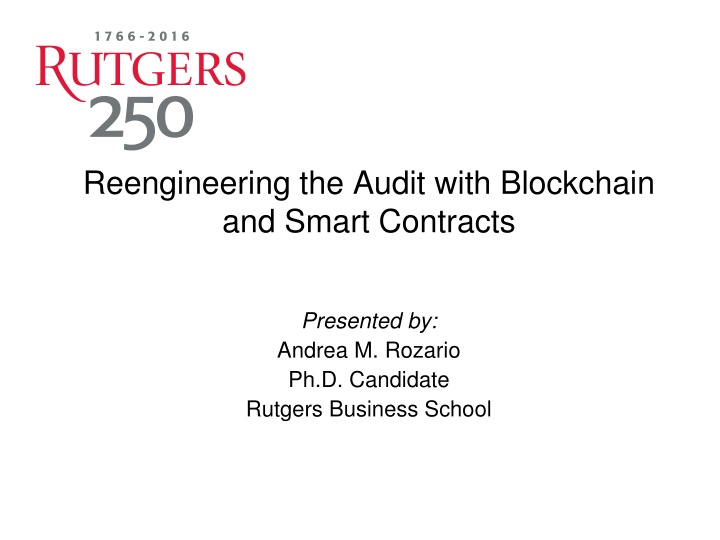
Leveraging Blockchain and Smart Contracts for Enhanced Auditing
Explore how blockchain and smart contracts can revolutionize auditing by enhancing audit quality, improving reliability of evidence, and narrowing information gaps. Presented by Andrea M. Rozario, Ph.D. Candidate from Rutgers Business School.
Uploaded on | 1 Views
Download Presentation

Please find below an Image/Link to download the presentation.
The content on the website is provided AS IS for your information and personal use only. It may not be sold, licensed, or shared on other websites without obtaining consent from the author. If you encounter any issues during the download, it is possible that the publisher has removed the file from their server.
You are allowed to download the files provided on this website for personal or commercial use, subject to the condition that they are used lawfully. All files are the property of their respective owners.
The content on the website is provided AS IS for your information and personal use only. It may not be sold, licensed, or shared on other websites without obtaining consent from the author.
E N D
Presentation Transcript
Reengineering the Audit with Blockchain and Smart Contracts Presented by: Andrea M. Rozario Ph.D. Candidate Rutgers Business School
Why blockchain for auditing? Lower risk of management override than in an ERP system, no super user role in blockchain and it is difficult to alter records (Ibrahim 2017; Glaser 2017; Olsen et al. 2019) Secure platform for third party monitoring, guard the guards , and enhance trust in the capital markets (Alles et al. 2004) Mitigate the risk of manipulation of audit workpapers Proactive inspection process to detect deficiencies near real-time Optimize the use of blockchain for auditing given its increasing adoption Rutgers Business School
Introduction Blockchain is a decentralized, distributed, and secure ledger originally developed for Bitcoin transactions Types of blockchain databases: public (permissionless), private(permissioned) Smart contracts autonomously execute the tasks for terms of contracts but can be useful in an auditing context Blockchain and smart contracts can change the way audits are performed and disseminated Source: https://medium.com/@matteozago/50-examples-of-how-blockchains-are-taking-over-the-world- 4276bf488a4b Rutgers Business School
Objectives How can auditors leverage blockchain and smart contracts as audit data analytic tools to enhance audit quality? Map the characteristics of blockchain that can enhance audit evidence to PCAOB requirements Propose an external audit blockchain supported by a variety of smart audit procedures Propose novel functions for the PCAOB and a holistic audit framework Rutgers Business School
Motivation Information Gap Financial Statement Users Performance Gap - PCAOB Increasing adoption of blockchain Expectations gap Rutgers Business School Important to explore how auditors can leverage blockchain and smart contracts to narrow gap
Blockchain can Improve the Reliability of Internal and External Audit Evidence Requirements of audit evidence: sufficiency, relevance and reliability (PCAOB AS 1105 2010) Challenges of Gathering Audit Evidence Traceable origins of sources (veracity) Blockchain Attributes Blockchain Benefits Decentralization Data Integrity to improve the reliability of audit evidence Immutability Accountability Decentralization One distributed depository for financial and nonfinancial data to improve the accuracy and timeliness of audit procedures and obtain a deeper understanding of the client Disaggregated data sources (variety) Rutgers Business School
Blockchain Audit Evidence and Smart Audit Procedures can Improve Audit Quality and Reporting Rutgers Business School
Interlinked Blockchain Ecosystems Audit PBC Ecosystem Smart Audit Procedures Revenue Analytics PCAOB Public Parties SEC Smart Controls & Smart Analytics Audit Committee Auditor Business PBC Ecosystem Bank Supplier A Auditor Customer A Customer B Client Rutgers Business School
Evolving the role of the PCAOB The PCAOB oversees audit firms to ensure audits are conducted in accordance with GAAS Seeks to improve their inspection process Expected to enhance efficiency by relying on technology New role for PCAOB as an active node on the audit blockchain to validate smart audit procedures and review their results Issues such as the performance of inadequate audit procedures can be mitigated Rutgers Business School
Holistic Audit Approach for Revenue Rutgers Business School
Issues and Future Research Limitation Future Research Computational power Why do users of private and permissioned blockchains opt out of using centralized databases? Storage capabilities Which methods can meet the demand to store big data on the blockchain? Cybersecurity risk How to design and implement a continuous monitoring system to reduce the risk of collusion on the blockchain network? Litigation risk How much transparency should be provided to financial statement users while maintaining an acceptable level of audit litigation risk? Vulnerability of smart contracts What are the quality processes that public accounting firms should have in place to ensure smart audit procedures are free of error? Regulatory acceptance How will the oversight model of financial statement audits be disrupted? Economics Would blockchain and smart contracts be developed in- house, or would it be outsourced? Rutgers Business School
Contributions Explores the evolution of auditing in light of blockchain of smart contracts by: Proposing an external audit blockchain supported by smart audit procedures Discussing the issues related to the application of these technologies Limitations and Future Research Existing audit risks were considered, new audit risks may emerge Described purpose and usefulness of the external audit blockchain Rutgers Business School
THANK YOU! Rutgers Business School


